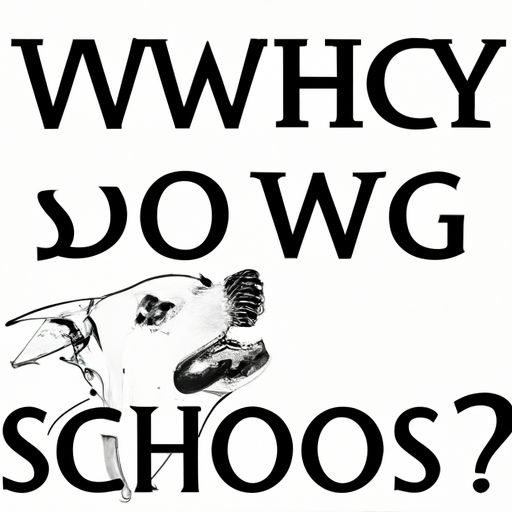As a passionate dog lover, you’ve probably noticed your furry friend make a variety of noises in their day-to-day interactions. One such sound that may have caught your attention is the occasional snort. This could lead you to wonder, why do dogs snort at you? Understanding this behavior can help you better communicate with and care for your canine companion.
- Table of Contents
- Understanding Snorting in Dogs
- Reasons for Snorting
- When to Be Concerned
-
FAQ
-
Key Takeaways
- Snorting in dogs can be a form of communication.
- Snorting can be a sign of excitement or pleasure.
- Dogs may also snort due to health issues.
- Always consult a vet if you’re worried about your dog’s snorting.
Understanding Snorting in Dogs
When your dog snorts, it’s usually a result of some kind of airflow disruption. This could be due to their physical structure, or because of an emotional response to something in their environment. It’s a sound that’s quite common in certain breeds like pugs and bulldogs, who have brachycephalic syndrome due to their shortened snouts [^1^].
Just like humans, dogs use a variety of sounds to communicate with those around them. From barking to growling, whining to howling, each sound has a specific meaning. Snorting is no different. It’s one of the many ways your dog communicates with you [^2^].
Reasons for Snorting
Snorting in dogs can occur for various reasons. Here are a few common ones:
-
Excitement or Pleasure: Much like how we laugh when we’re happy, dogs often snort when they’re excited or pleased. If your dog snorts while you’re playing together or during a belly rub, it’s likely a sign of their enjoyment.
-
Communication: Dogs may snort to get your attention or express a particular feeling. This is especially common if they’re feeling playful or want some extra attention.
-
Health Issues: Certain health issues can lead to snorting in dogs, such as allergies, respiratory infections, or issues with their nasal passages. If you notice your dog snorting frequently or alongside other symptoms, it’s best to consult with a veterinarian.
When to Be Concerned
While snorting is usually harmless, it can sometimes be a sign of a more serious health issue. If your dog’s snorting is accompanied by other symptoms like difficulty breathing, loss of appetite, or lethargy, you should consult with a vet immediately. It’s always better to be safe than sorry when it comes to your pet’s health.
Frequently Asked Questions
Q: Is snorting common in all dog breeds?
A: While all dogs can snort, it’s more common in breeds with shorter snouts like pugs and bulldogs.
Q: Should I be worried if my dog snorts a lot?
A: If your dog’s snorting is accompanied by other symptoms or appears to be causing them distress, it’s best to consult with a vet.
Q: Can I do anything to minimize my dog’s snorting?
A: Depending on the cause, there may be steps you can take to minimize your dog’s snorting. For example, if allergies are the culprit, you can try to identify and eliminate the allergen. However, always consult with a vet before making any significant changes to your dog’s environment or routine.
Understanding your dog’s snorting habits can help you better care for their needs and ensure their wellbeing. If you’re ever in doubt, remember to consult with a professional to ensure your furry friend is healthy and happy.
[^1^]: Brachycephalic Syndrome in Dogs
[^2^]: Understanding Dog Sounds & Vocalizations
^3^: Dog Communication
^4^: Common Dog Behaviors Explained
^5^: Dog Breeds Prone to Snorting



